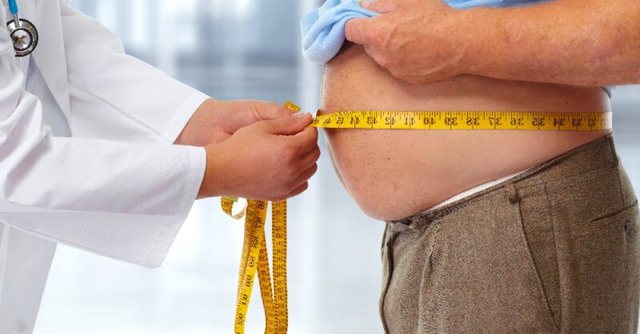
Two Croatian doctors treat patients suffering from obesity with a therapy that includes many disciplines. Spiritual balance and patience are more important to success than sports and fasting radically.
Anyone who struggles to lose weight knows full well how hard it is to lose the extra pounds: Sport is exhausting and diets often have short-term success. Once you have lost a few pounds by not eating, they come back again after a while. Being overweight, ie obesity, affects the quality of life and shortens the lifespan of those affected.
Doctors from Osijek, Mario Curkovic and Drazen Gorjanski, are talking about the success they have had in helping 130 overweight people to significantly reduce their weight.
These two doctors do not use any therapy or diet, but treat patients in different ways, because Curkovic and Gorjanski think that obesity is a complex but curable disease. The method used by doctors is called "POST", the Osijek program for weight loss, (Osjeckog Smanjivanja Tezine Program), and they did not even expect the success of the behavior therapy.
Complex body communication pathways
Human psychology is difficult to understand, Goranjski points out. And since it is complex, many factors also play a role in obesity. Obesity should therefore be treated as a disease that involves many disciplines.
"Like many other diseases, obesity has many causes, treatments, and cures," says the doctor. "In our body there is a system of maintaining constant weight, the homeostatic system. It relies on communication between the digestive system and the brain centers that are responsible for hunger, satiety and taste."
Most people eat normally when they feel hungry. And eat what they like, without gaining weight. "However, with today's lifestyle, there is a large supply of unhealthy foods and it is eaten more often causing damage to the communication between the digestive system and the brain," says Gorjanski.
Putting this communication back in balance is the goal of POST therapy. "Through autogenic training, meditation, healing of the digestive system and occasional fasting, we actually renew both the digestive system and the homeostatic system as well as the communication between them," says the doctor. normal functions. "
Getting rid of obesity myths
During the development of therapy both doctors had to deal with many myths about obesity, for example that weight can be reduced with a diet combined with movement, according to the motto "eat less - move more". Sports and exercise are healthy and do well, however none of the patients spend much on therapy. Doctors do not make patients count calories or follow a strict diet.
In their therapy, the aim is more to reduce the habit of hunger over time. Therapy reverses the stimulation caused by hunger, until the brain is stimulated by it only when the body really needs food, that is, when it receives hunger.
"One can organize the body training oneself," says Curkovic, "our goal is to heal the brain and not to lose weight." then the results in weight loss are achieved. ”
Learning to listen to the body
The program contains courses that take place once a week for six months in a row. Patients lose 15 to 20 pounds during this period. Some have even managed to lose 40 pounds.
Doctors point out that the amount of pounds lost by someone is not an indicator of the effectiveness of their method. What is important is only to establish balance in the communication between the stomach and the brain.
130 patients who have used POST therapy, agree with the confidence that doctors have in the scientific values ??of their method. Both doctors are currently working on a scientific study.
Comparisons with other programs on behavior therapy
A similar therapy program called the Trevose Behavior Modification Program (TBMP) was developed in the United States during the Corona pandemic. This program has had even better results than POST, say Croatian doctors. However this program has excluded patients who have not had significant weight loss in the first six weeks of the trial phase. "It's like a surgeon operating only when he knows he will succeed," Curkovic said. "We 'operate' on anyone who needs help."
Gorjanski says TBMP is rated as the most successful weight loss program in the world, but participants do not reflect the real population average. POST participants, on the other hand, are a "completely democratic" group. Anyone who has reached the age of majority and will lose weight is welcome "regardless of age, gender or physical condition."
Target group not only obese
In fact POST participants are a heterogeneous group. There are people with extreme obesity, not overweight or with diabetes who need to take care of food. Both doctors have therefore developed a wide range of tools that can be used by patients. Participants participate in those things that they personally need. "Some do not like autogenous training, some like it. They do not need to use everything, because they can choose what is right for them," says Curkovic. "The important thing is that there are no restrictions on food."
They can eat Kulen, a type of sausage, which is a specialty from the Slavonia region, or dried bacon, says the doctor. But: "We can not tell people from Slavonia not to eat Kulen!", Says Curkovic.
Food as a habit
The two doctors compare the great hunger with the addiction created by drugs: "Food can become a habit," says Gorjanski. "But it's complicated: Our patients are learning what a habit is and how to get rid of it. So far it has not been seen to develop cabbage addiction, but sugar addiction is a serious problem. A person who is completely healthy and starts consuming large amounts of sugar, can create an addiction as the person begins to consume alcohol. "
In addition to scientific research, Curkovic and Gorjanski are also working on a book. "We have proven that it works. It would not be good not to share this knowledge with others, to help other people," says Curkovic.
But why aren't behavioral therapies still common to fight obesity? "No one makes money with this way of losing weight. Because it does not contain drugs, which must be taken constantly or special preparations. No one makes money with people who have lost fat," says the doctor.
Source: DW





